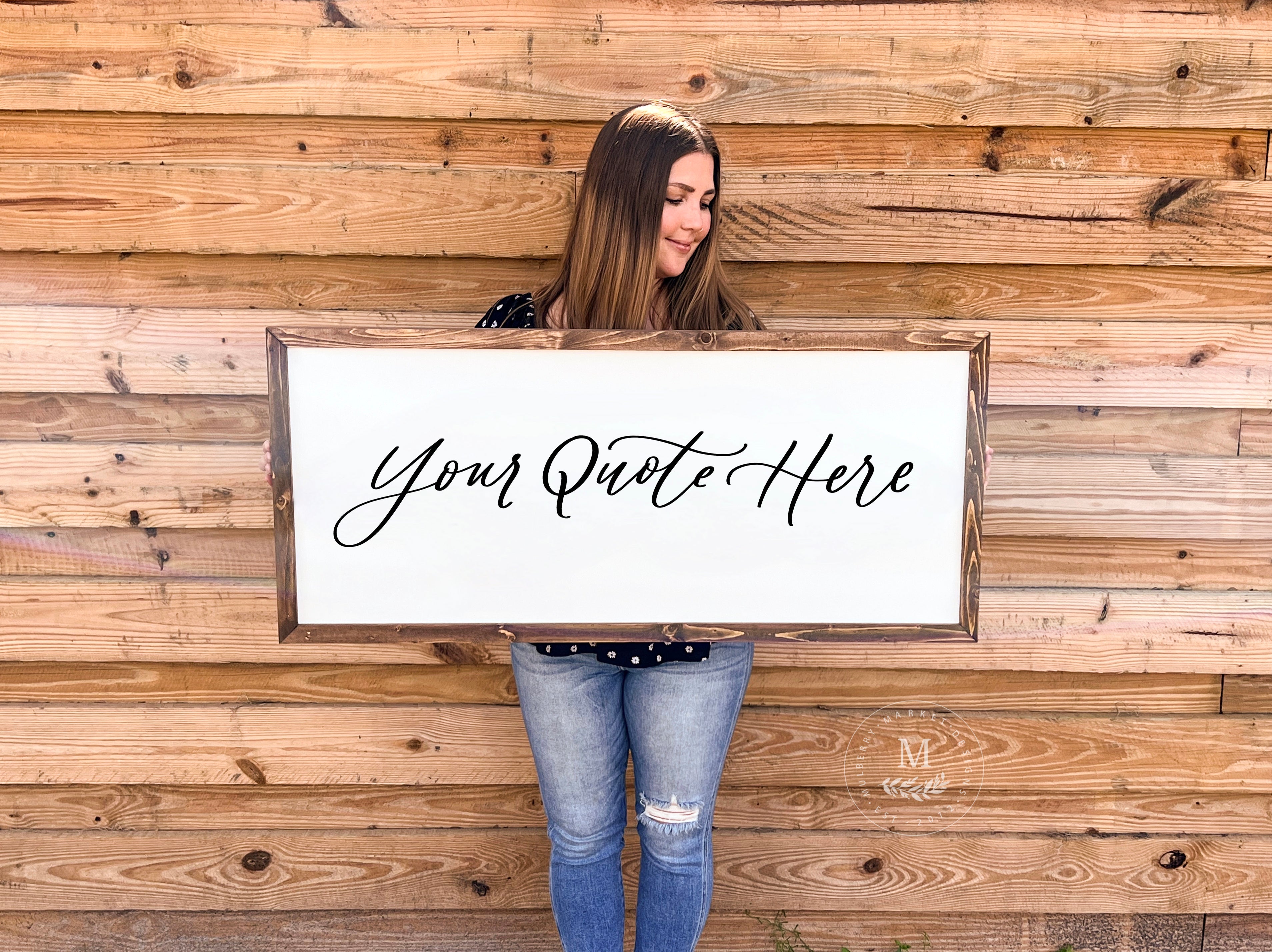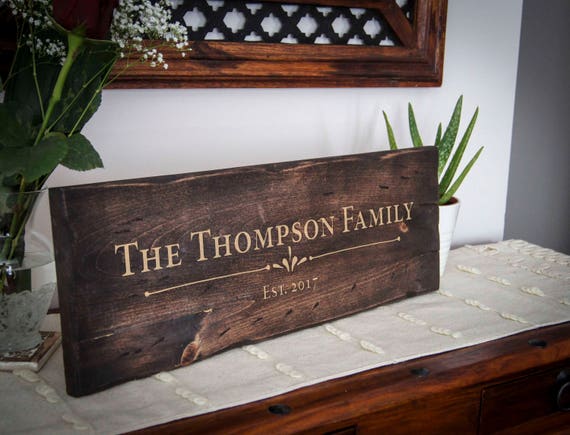In a world where every detail matters, custom decorative signs have become an essential tool for homeowners and business owners alike. Whether you want to spruce up your living room, enhance your garden, or promote your business, a bespoke sign can communicate your personality and style effectively. Drawing from my personal experience and extensive research, I’ll guide you through the world of decorative signs, ensuring you make informed choices that resonate with your vision.
What Are Custom Decorative Signs?
Custom decorative signs are personalized pieces of art that convey messages, directions, or themes, made specifically to fit your preferences. They can be crafted from various materials, including wood, metal, acrylic, and more, and can serve both functional and aesthetic purposes.
Types of Custom Decorative Signs
- Wood Signs: Perfect for rustic aesthetics.
- Metal Signs: Durable and often used for business branding.
- Acrylic Signs: Sleek and modern, suitable for contemporary designs.
- Yard Signs: Used for outdoor displays and promotions.
Benefits of Custom Decorative Signs
There are numerous reasons why investing in custom decorative signs is a great idea:
- Personalization: Tailor your sign to reflect your personality or brand.
- Visibility: Make your home or business stand out.
- Branding: Essential for businesses looking to create a strong identity.
- Decorative Appeal: Enhance the overall aesthetics of your space.
Choosing the Right Materials
The material you choose for your custom decorative sign plays a pivotal role in its appearance and longevity. Here’s a breakdown of common materials:
Comparison of Materials
| Material | Pros | Cons |
|---|---|---|
| Wood | Natural look, customizable, easily paintable | Can warp or rot, requires maintenance |
| Metal | Durable, weather-resistant, modern appearance | Can be heavy, may rust if not treated |
| Acrylic | Lightweight, shiny finish, easy to clean | Can scratch easily, less robust than metal |
| Vinyl | Inexpensive, versatile, easy to install | Less durable than wood or metal |

Understanding Design Elements
When designing your custom decorative sign, several elements should be considered to ensure a cohesive and attractive look:
Colors
Choose colors that align with your brand or personal aesthetics. Consider color psychology—blues can evoke calmness, while reds can generate excitement.

Fonts
The typography chosen for your sign can convey different messages. A whimsical font can impart a casual feel, while a sleek sans-serif font can contribute to a modern look.
Graphics and Imagery
Incorporating graphics can enhance your sign’s message. Choose images that align with the theme or purpose, whether floral designs for a garden or symbols that reflect your brand.

DIY vs. Hiring a Professional
Creating a custom decorative sign can be a rewarding DIY project, but hiring a professional ensures precision and artistry. Here’s a quick comparison:
DIY Custom Signs
- Pros: Cost-effective, personal satisfaction.
- Cons: Time-consuming, may lack professional finish.

Professional Custom Signs
- Pros: High-quality craftsmanship, experienced advice.
- Cons: Higher cost, less personal involvement.
Finding the Right Designer
If you’ve decided to go with a professional, here are some tips for finding the right designer:
Research and Portfolio Review
Look through designers’ portfolios to find one whose style resonates with you. Don’t hesitate to reach out for their previous work references.

Communication and Responsiveness
A great designer will actively listen to your ideas and provide suggestions. Clear communication helps ensure your vision is understood.
Where to Display Your Custom Signs
Indoor Spaces
Custom decorative signs can transform any internal space:
- Living Room: Personal quotes or family names on a wooden sign.
- Kitchen: Fun cooking-themed signs.

Outdoor Spaces
In outdoor spaces, your sign can set the tone of your garden or property:
- Garden: Rustic wooden signs with plant names.
- Business Front: Eye-catching metal signage that represents your brand.
Maintaining Your Custom Signs
To ensure your custom decorative signs look great for years to come, proper maintenance is essential. Here are some key tips:

Wood Signs
Regularly check for signs of wear and apply a protective sealant to prevent moisture damage.
Metal Signs
Periodically inspect for rust and clean with a suitable metal cleaner.
Acrylic Signs
Use a soft cloth and an acrylic cleaner to maintain transparency and shine.
Conclusion: Create Your Unique Space with Custom Decorative Signs
Custom decorative signs can significantly enhance the aesthetics and functionality of your space. Whether you decide to embark on a DIY project or enlist professional help, the possibilities are endless. Remember to choose materials, designs, and messages that resonate with you. Taking the time to personalize your environment is an investment that pays off in happiness and satisfaction.
FAQs About Custom Decorative Signs
What materials are best for outdoor custom signs?
Durable materials such as metal and treated wood are best for outdoor signs as they can withstand weather conditions.
How long does it take to create a custom sign?
The timeframe can vary based on the complexity of the design and the workload of the designer. Typically, it can take from a week to several weeks.
Can I add images or logos to my custom signs?
Yes! Most designers can incorporate images and logos into your custom sign to enhance its message and aesthetic appeal.
Are custom signs expensive?
Pricing varies based on materials, size, and complexity. However, investing in a good custom sign can add value and charm to your space.